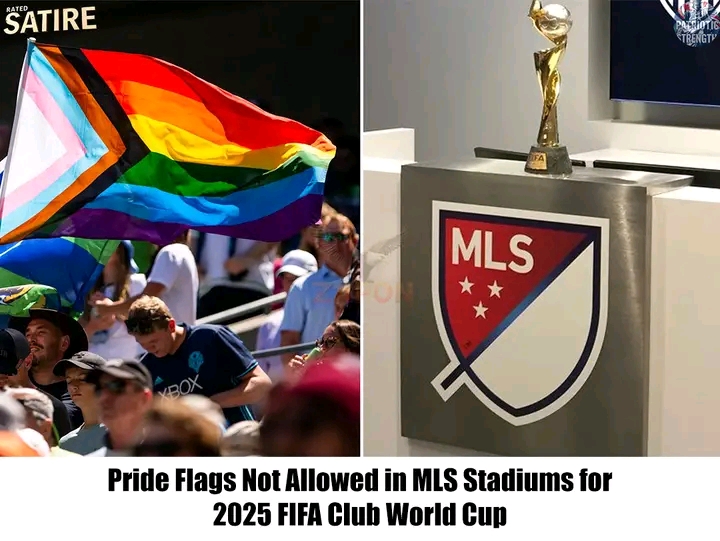NFL
Pride Flags Banned in MLS Stadiums for 2025 FIFA Club World Cup

In a significant move that has sparked considerable debate, Major League Soccer (MLS) has announced its decision to ban Pride flags from stadiums during the 2025 FIFA Club World Cup. This decision, which has quickly become a hot topic in sports and LGBTQ+ rights communities, reflects the growing tension between sports organizations and their policies on political and social expressions. The move has garnered both support and criticism, as it raises questions about the intersection of sports, politics, and inclusivity.
The 2025 FIFA Club World Cup will be held in the United States, with matches taking place across various stadiums in different cities. The competition is scheduled to run from June 15 to July 13, 2025, and will feature top club teams from around the world, competing for the prestigious title. This event is expected to draw massive crowds and international attention, making it a focal point for sports fans and media. However, the decision to ban Pride flags from stadiums during this global event has overshadowed the excitement surrounding the tournament itself.
The ban on Pride flags is part of a broader trend where sports leagues, including FIFA, have struggled with how to handle political expressions within their events. In recent years, sports organizations have found themselves at the center of controversies surrounding players’ protests, rainbow-colored merchandise, and symbols of political and social movements. The controversy often stems from the desire to maintain neutrality in sports while also responding to the increasing demand for equality and representation, particularly in the case of LGBTQ+ rights.
For many, the Pride flag has become a universal symbol of support for the LGBTQ+ community and a reminder of the ongoing fight for equal rights. Its presence at sports events, especially during high-profile tournaments like the FIFA Club World Cup, is seen as a way to show solidarity with LGBTQ+ individuals. Fans and activists have long argued that sports, being such a widely followed and influential platform, should be used to promote inclusivity and acceptance, regardless of sexual orientation or gender identity.
However, the decision to ban the Pride flags at the upcoming FIFA Club World Cup 2025 has ignited backlash from LGBTQ+ groups, players, and fans alike. Many critics argue that such a ban represents a step backward in the fight for equality, as it sends a message that LGBTQ+ visibility and support are unwelcome in the world of professional sports. They contend that sports events should be a space for everyone, including LGBTQ+ individuals, to express themselves without fear of exclusion or discrimination.